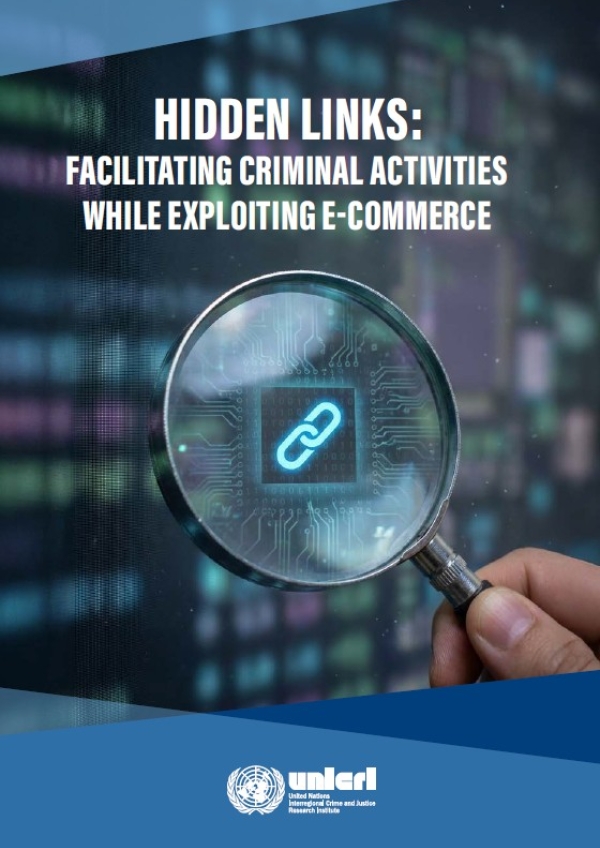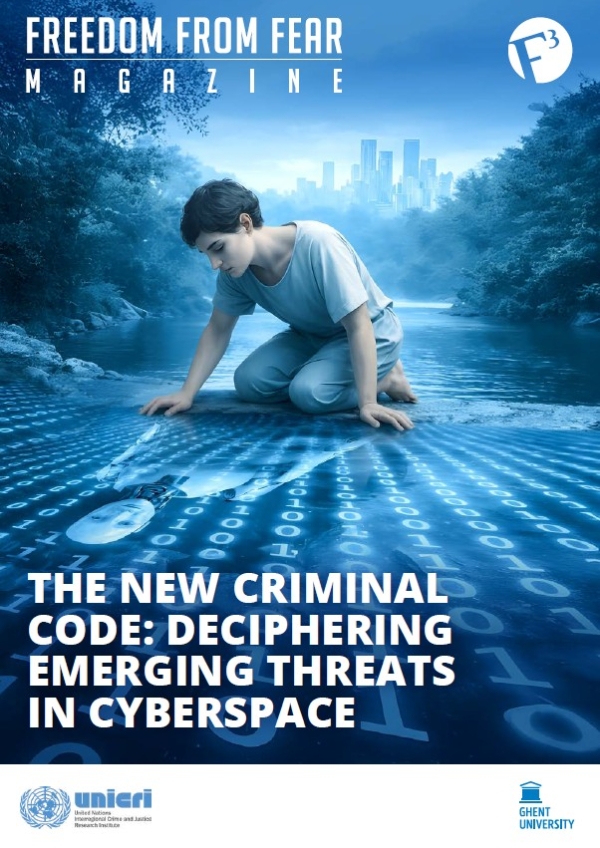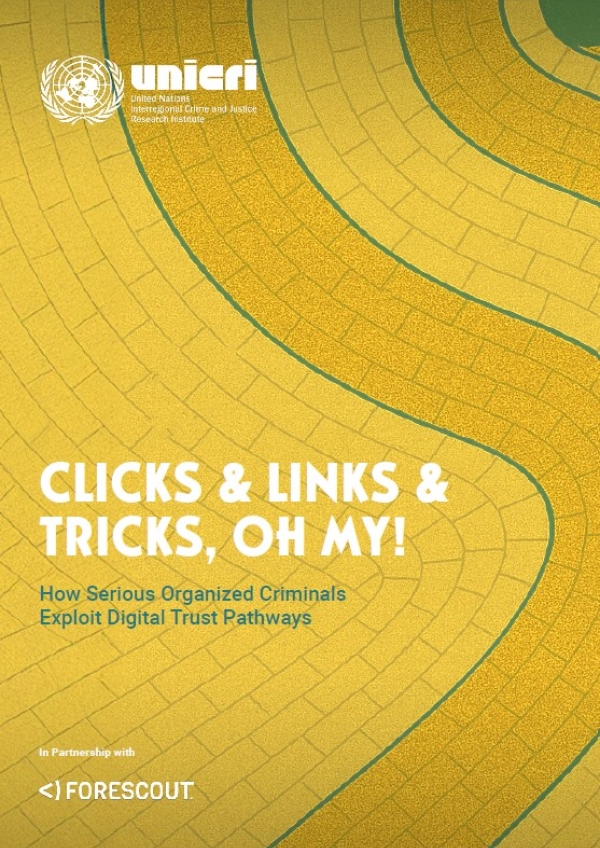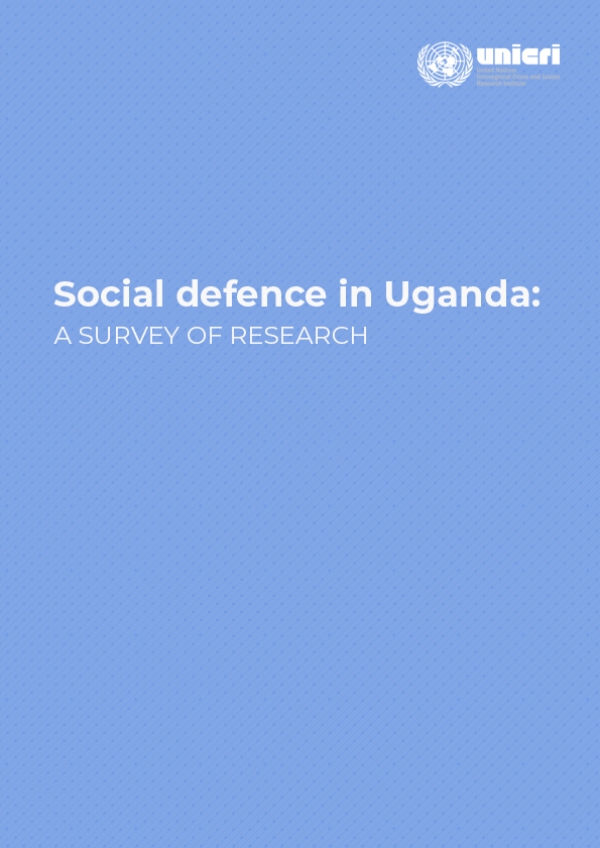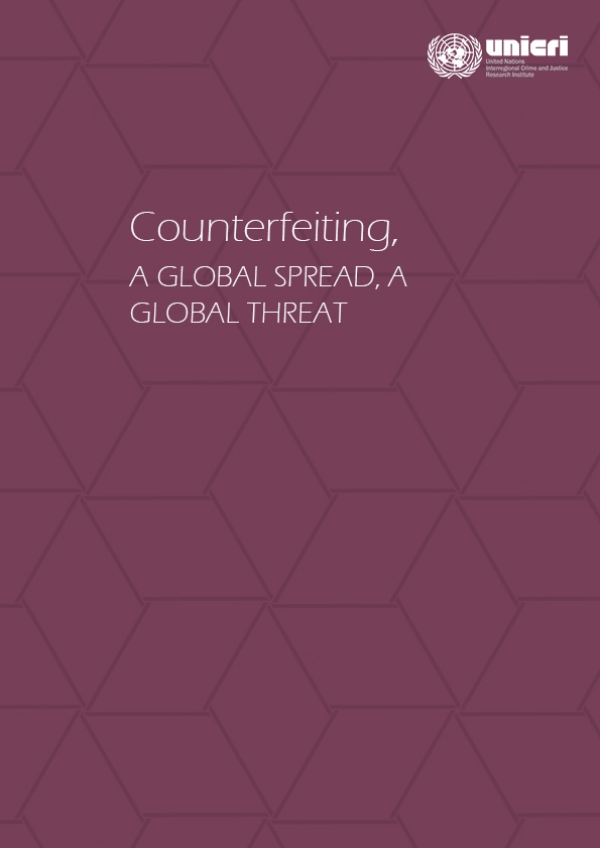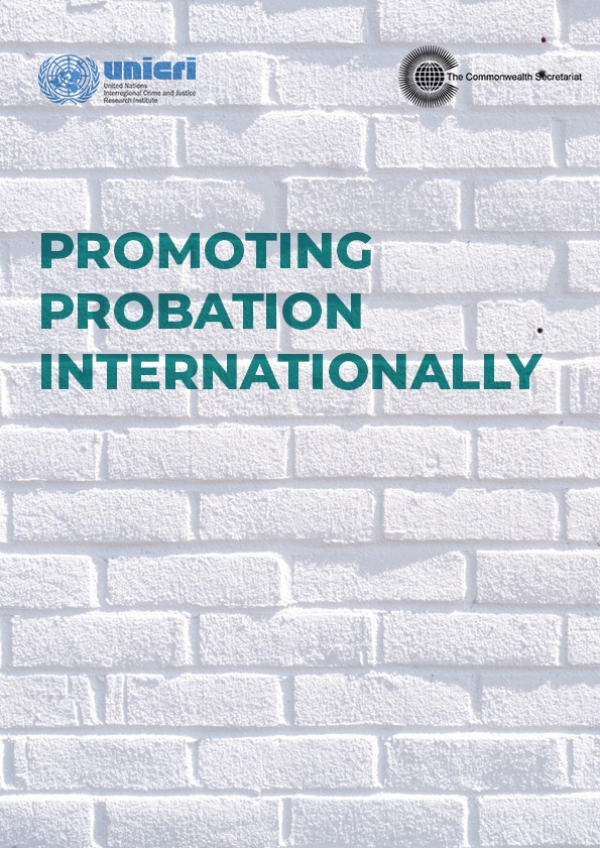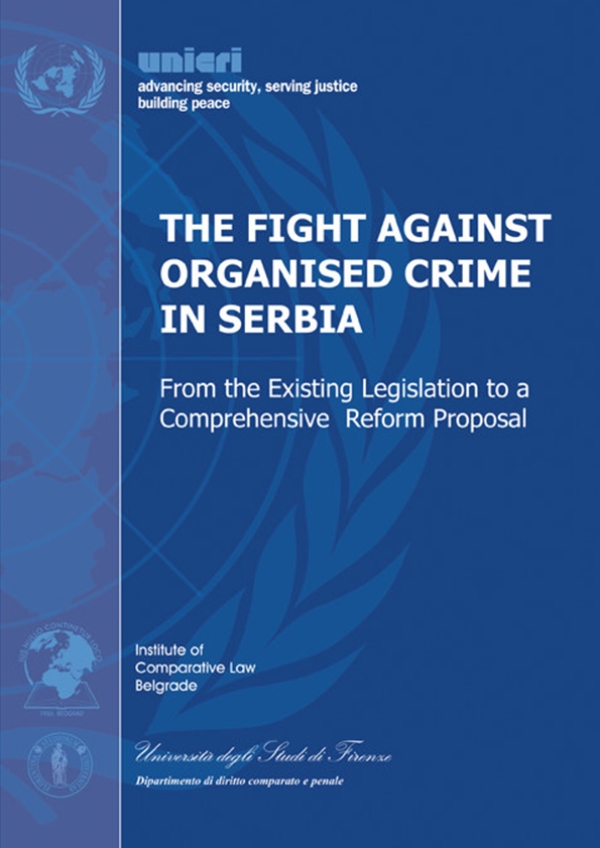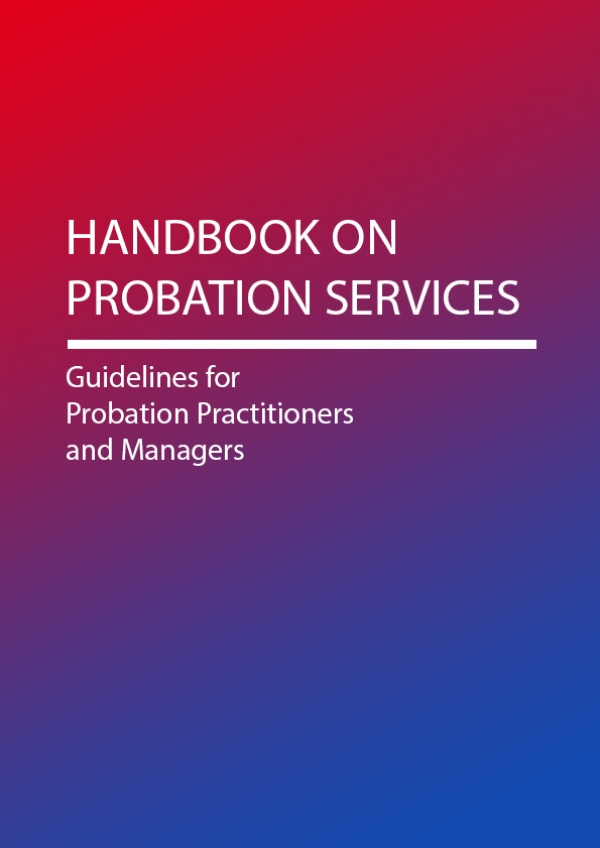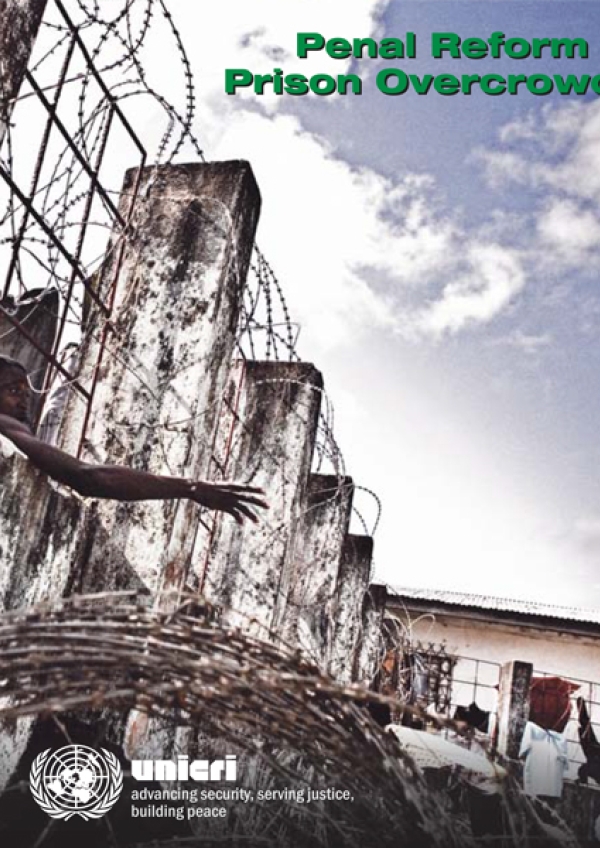UNICRI’s publications offer insights from cutting-edge research, tailored to global and context-specific needs, providing evidence-based analysis to inform policymaking and build advanced capacities.
Addressing topics such as violent extremism, organised crime, cybersecurity, CBRN risk mitigation, artificial intelligence, environmental crimes, gender issues, disinformation, illicit financial flows, and justice reform, these studies foster collaboration and advance sustainable solutions for peace, equality, and development. Explore our collection to stay informed and inspired.
Through our publications, we aim to deepen knowledge, foster collaboration, and drive forward sustainable solutions that promote justice, peace, security, accountability, equality, and development. Whether you are a policymaker, researcher, or practitioner, UNICRI’s publications serve as a trusted resource to inspire informed action and meaningful impact. Explore our collection to stay at the forefront of global and local security challenges.
Our Publications
21 Dec 2021
When we see the Earth from space, we see ourselves as a whole. We see the unity, and not the divisions. It is such a simple image with a compelling message; one planet, one human race.” Stephen Hawking
14 Dec 2021
In April 2021, following concerns raised by some European countries, UNICRI launched a research initiative to explore, assess, and understand the potential interplay between regular and irregular movements of people and the threat stemming from ISIL and Al-Qaida inspired terrorism in Europe. The research also looked at the risks posed by returning and relocating Foreign Terrorist Fighters (FTFs). The recent Taliban takeover of Afghanistan and the potential massive exodus of Afghans have led to heightened security concerns in European countries and Turkey.
13 Dec 2021
The Deutsche Gesellschaft für Internationale Zusammenarbeit (GIZ) and the United Nations Interregional Crime and Justice Research Institute (UNICRI) have launched an insightful study on Illicit Financial Flows (IFFs) and Asset Recovery. This study sheds light on the significant damage being caused to Tunisia as a result of unchecked IFFs, and on the significant value of prioritising the capture of illicitly obtained assets linked to such IFFs.
11 Oct 2021
Major Sporting Events (MSEs) are collective celebrations of human achievements and a source of pride for those who participate in them or host them. In recent years, the range of countries which have been prepared to organize an MSE has extended across all continents. Satellite-supported live television has broadened the number of spectators to hundreds of millions of people. This allows an organizing country or city to place itself, as it were, on the mental map of global audiences.
Pagination
21 Dec 2021
When we see the Earth from space, we see ourselves as a whole. We see the unity, and not the divisions. It is such a simple image with a compelling message; one planet, one human race.” Stephen Hawking
14 Dec 2021
In April 2021, following concerns raised by some European countries, UNICRI launched a research initiative to explore, assess, and understand the potential interplay between regular and irregular movements of people and the threat stemming from ISIL and Al-Qaida inspired terrorism in Europe. The research also looked at the risks posed by returning and relocating Foreign Terrorist Fighters (FTFs). The recent Taliban takeover of Afghanistan and the potential massive exodus of Afghans have led to heightened security concerns in European countries and Turkey.
13 Dec 2021
The Deutsche Gesellschaft für Internationale Zusammenarbeit (GIZ) and the United Nations Interregional Crime and Justice Research Institute (UNICRI) have launched an insightful study on Illicit Financial Flows (IFFs) and Asset Recovery. This study sheds light on the significant damage being caused to Tunisia as a result of unchecked IFFs, and on the significant value of prioritising the capture of illicitly obtained assets linked to such IFFs.
11 Oct 2021
Major Sporting Events (MSEs) are collective celebrations of human achievements and a source of pride for those who participate in them or host them. In recent years, the range of countries which have been prepared to organize an MSE has extended across all continents. Satellite-supported live television has broadened the number of spectators to hundreds of millions of people. This allows an organizing country or city to place itself, as it were, on the mental map of global audiences.
Pagination
21 Dec 2021
When we see the Earth from space, we see ourselves as a whole. We see the unity, and not the divisions. It is such a simple image with a compelling message; one planet, one human race.” Stephen Hawking
14 Dec 2021
In April 2021, following concerns raised by some European countries, UNICRI launched a research initiative to explore, assess, and understand the potential interplay between regular and irregular movements of people and the threat stemming from ISIL and Al-Qaida inspired terrorism in Europe. The research also looked at the risks posed by returning and relocating Foreign Terrorist Fighters (FTFs). The recent Taliban takeover of Afghanistan and the potential massive exodus of Afghans have led to heightened security concerns in European countries and Turkey.
13 Dec 2021
The Deutsche Gesellschaft für Internationale Zusammenarbeit (GIZ) and the United Nations Interregional Crime and Justice Research Institute (UNICRI) have launched an insightful study on Illicit Financial Flows (IFFs) and Asset Recovery. This study sheds light on the significant damage being caused to Tunisia as a result of unchecked IFFs, and on the significant value of prioritising the capture of illicitly obtained assets linked to such IFFs.
11 Oct 2021
Major Sporting Events (MSEs) are collective celebrations of human achievements and a source of pride for those who participate in them or host them. In recent years, the range of countries which have been prepared to organize an MSE has extended across all continents. Satellite-supported live television has broadened the number of spectators to hundreds of millions of people. This allows an organizing country or city to place itself, as it were, on the mental map of global audiences.
Pagination
21 Dec 2021
When we see the Earth from space, we see ourselves as a whole. We see the unity, and not the divisions. It is such a simple image with a compelling message; one planet, one human race.” Stephen Hawking
14 Dec 2021
In April 2021, following concerns raised by some European countries, UNICRI launched a research initiative to explore, assess, and understand the potential interplay between regular and irregular movements of people and the threat stemming from ISIL and Al-Qaida inspired terrorism in Europe. The research also looked at the risks posed by returning and relocating Foreign Terrorist Fighters (FTFs). The recent Taliban takeover of Afghanistan and the potential massive exodus of Afghans have led to heightened security concerns in European countries and Turkey.
13 Dec 2021
The Deutsche Gesellschaft für Internationale Zusammenarbeit (GIZ) and the United Nations Interregional Crime and Justice Research Institute (UNICRI) have launched an insightful study on Illicit Financial Flows (IFFs) and Asset Recovery. This study sheds light on the significant damage being caused to Tunisia as a result of unchecked IFFs, and on the significant value of prioritising the capture of illicitly obtained assets linked to such IFFs.
11 Oct 2021
Major Sporting Events (MSEs) are collective celebrations of human achievements and a source of pride for those who participate in them or host them. In recent years, the range of countries which have been prepared to organize an MSE has extended across all continents. Satellite-supported live television has broadened the number of spectators to hundreds of millions of people. This allows an organizing country or city to place itself, as it were, on the mental map of global audiences.
